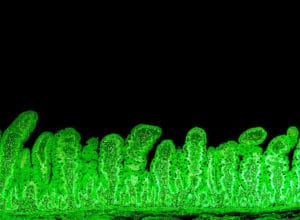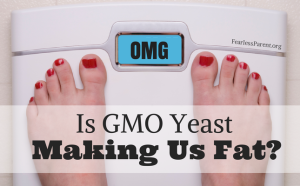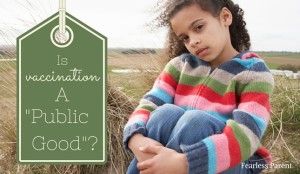Stress is a two-way street. When we think of stress, it’s usually about emotional stress, known to cause physical illness. But what about stress in womb? Physical imbalances can lead to emotional stress. This article will explore an underlying mechanism of both roads to stress: the gut-brain.
Emotional stress is known to lower counts of protective microbes. Adverse childhood experiences (ACE) such as physical, sexual and emotional abuse are associated with inflammatory bowel disease (IBD) and irritable bowel syndrome (IBS). A recent study found gut microbiota essential to the process of early childhood emotional stress leading to intestinal imbalance as cause of depression in adulthood.
Some children are born physically imbalanced, predisposed to lives of emotional stress. This process begins in the womb, for decades considered a sterile place of development. But tides are turning rapidly. What was once thought sterile is now known teeming with life. The placenta, meconium, amniotic fluid, and umbilical cord are all colonized.
The idea that colonization of microbes begins during childbirth is a medical myth without evidence. Most leading scientists still don’t fully accept the idea that colonization begins in the womb from moment of conception. They are disconnected from the web of life, condoning vaccination within hours of birth without consideration for how microbes regulate immune response.
No studies have been published about how certain microbial balance may increase risk of vaccine injury when protective microbes are reduced or absent. There are several research papers about how vaccine response in infants hinges on gut microbes. Yet vaccine scientists are busy developing probiotic adjuvants. If they’re lucky, such adjuvants will not only improve vaccine response, but also decrease risk of intestinal injury leading to brain injury including autism, epilepsy, Infantile Spasm, SIDS and SUDEP.
Researchers have explored a vaccine for depression. The first paper raising questions about the mechanistic plausibility of vaccination as a cause of clinical depression was just published, and I hope for much more to come. Of note, depressed patients don’t respond well to vaccination.
A rough start in life
 So, now we can see how imbalanced flora, beginning in the womb, predisposes to a stressful life. This includes not just emotional grief, but physical conditions associated with depression such as obesity, diabetes and anorexia, all linked to gut dysbiosis. The womb is the quintessential place for adverse childhood experiences. But how does this problem begin?
So, now we can see how imbalanced flora, beginning in the womb, predisposes to a stressful life. This includes not just emotional grief, but physical conditions associated with depression such as obesity, diabetes and anorexia, all linked to gut dysbiosis. The womb is the quintessential place for adverse childhood experiences. But how does this problem begin?
It begins, of course, with maternal health. Vertical transmission of microbes from mother to fetus is a mysterious process. Proof of the process can be found in flora from diabetic and gestational diabetic mothers correlating with flora found in meconium.
Likewise, maternal obesity brings risk of having an autistic child, a matter of microbial predisposition. Throw genes out the window for a moment. Diet is known to override genes in regulating microbial balance. Environment trumps and tramples on genes every day of the week.
One interesting possibility of how pathogenic microbes access the fetal gut is via fat circulating in the body of the mother. Chylomicrons are packages of fat sent from the small intestine via the lymphatic system (Peyer’s patches/lacteal ducts) to all parts of the body requiring lipids including the brain. They have proteins binding to bacterial lipopolysaccharide (LPS) toxins in the gut and normally deactivate LPS. But if there is small intestinal gram-negative bacterial overgrowth associated with diabetes, leaky gut and major gut diseases, it may be too much for chylomicrons to handle.
LPS is part of the cell wall of gram-negative bacteria, so it’s likely these bacteria are riding fat out of the gut to places including the brain and placenta. This may be how gram-negative bacteria access the fetal liver which then moves microbes into fetal intestines. Toxin translocation conceivably includes bacterial translocation associated with diabetes and a high fat diet.
Let’s keep in mind these gram-negative bacteria have purpose as one of the founding members of the fetal gut where microbial assembly is known to be a matter of gestational age, hence preterm infants are prone to autism and adverse vaccine events when microbes dysregulate immune response to vaccination. Sadly, current protocol is to vaccinate as full term when newborns weigh at least 2.2 pounds.
You might wonder about how a high-fat diet in pregnancy affects the fetus given what we know about LPS-producing bacteria binding to fat. Earlier this year, a study warned against consuming a high fat diet in pregnancy as it can significantly reduce the size of the fetal liver, compromising immune system function. Another paper published this year warned against maternal use of excess fish oil as it apparently skews infant gut flora while reducing immune cells (possibly via leaky maternal gut). So, this issue is not just about saturated fat, but also polyunsaturated omega-3 fats used in excess.
A seminal 2012 paper showed how the maternal microbiome naturally shifts toward a diabetic state in the third trimester. This is also when the fetal brain triples in weight, suggestive of flora regulating lipid biosynthesis required to build the fetal brain.
What’s a prospective mother to do?
And how should our society support healthy pregnancies?
We need to foster healthy intestines with focus on the small intestine.
We can do this by keeping protective bacterial counts at healthy levels, especially lactic acid bacteria (Lactobacillus and Bifidobacteria) to protect against gram-negative bacterial and yeast overgrowth. This would include guarding against antibiotic abuse and poor diet where sugar feeds overgrowth of pathogenic strains of gram-negative and Clostridium bacteria.
On a larger scale, we need to reduce toxic pollutants such as agrochemicals and air pollution putting vulnerable, protective microbes at risk.
 Keith Bell of Sanitation Circle is a 25 year veteran of the recycling industry with interest in sanitation and health. During the 1980s, he was a UNICEF radio spokesperson in Chicago for the annual release of State of the World’s Children Report. He’s particularly interested in gut-brain connection including gut-origin of seizure, underdiagnosed in epilepsy. Sanitation is Sanity poster. Contact Keith at kbellrpi@gmail.com.
Keith Bell of Sanitation Circle is a 25 year veteran of the recycling industry with interest in sanitation and health. During the 1980s, he was a UNICEF radio spokesperson in Chicago for the annual release of State of the World’s Children Report. He’s particularly interested in gut-brain connection including gut-origin of seizure, underdiagnosed in epilepsy. Sanitation is Sanity poster. Contact Keith at kbellrpi@gmail.com.
Photo comment:
Internal and external environmental issue of the highest order, this is about 1/8″ high, the inner lining of the human small intestine (third section, ileum). On the other side is another 1/8″ and together this is the most important 1/4″ of the body.













Adding to your topic that “stress in the womb can impact early life” I want to draw your attention to the highly harmful stress babies experience if they happen to leave the womb to early because the current medical approach to treating premature babies is at least as misguided as the vaccination dogma and causes also at least as much preventable damage. To document this assertion I suggest you read my article “Fake science and bogus bioethics in medical research about premature babies” which I posted at http://retinopathyofprematurity.org/01summary.htm, and more of the articles listed in the navigation page on its left, all the way to the latest “Sixty-year-old Crypto-Eugenic Euthanasia Program
continues to kill babies to protect them from blindness” which you find at http://retinopathyofprematurity.org/65OngoingEuthanasiaProgram.htm.
I also recommend the guest post “SUPPORT: Tuskegee-Style Medical Deceit Still Overrules Human Research Protections” which I wrote for Vera
Sharav’s site Alliance for Human Research Protection, as posted at http://ahrp.org/tuskegee-style-medical-deceit-still-overrules-human-research-protections/
These articles document that vaccinations are by far not the only misguided medical routine practice but are part of a broader pattern of harming our children with dogmatic ignorance reminiscent of the infamous “purging, cupping, and bleeding” that once characterized medical treatments but is still with us in the only slightly disguised forms of heedless vaccinations and brain-damaging oxygen withholding, to name just two of the current malpractices. The more things change the more they remain the same!